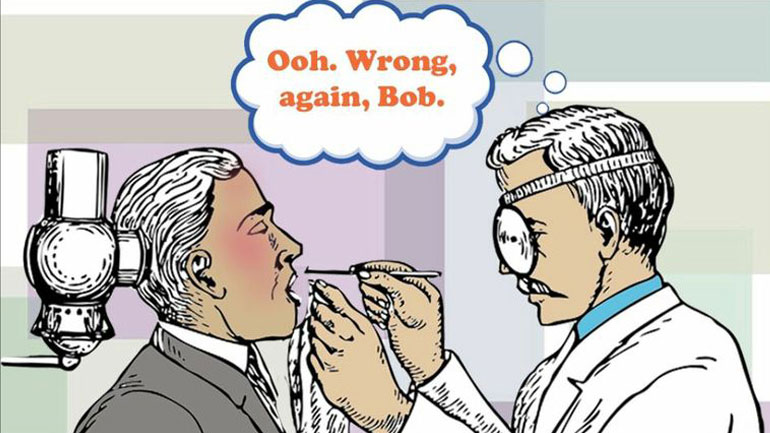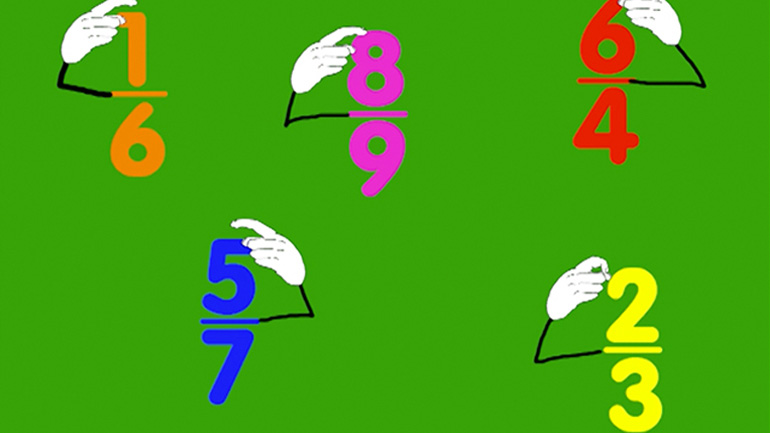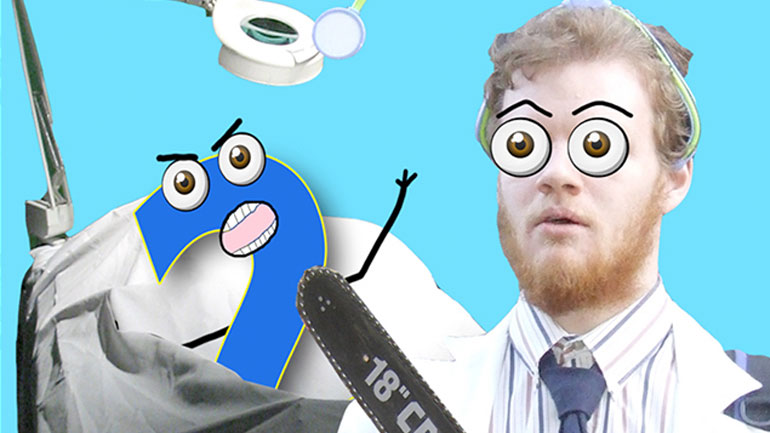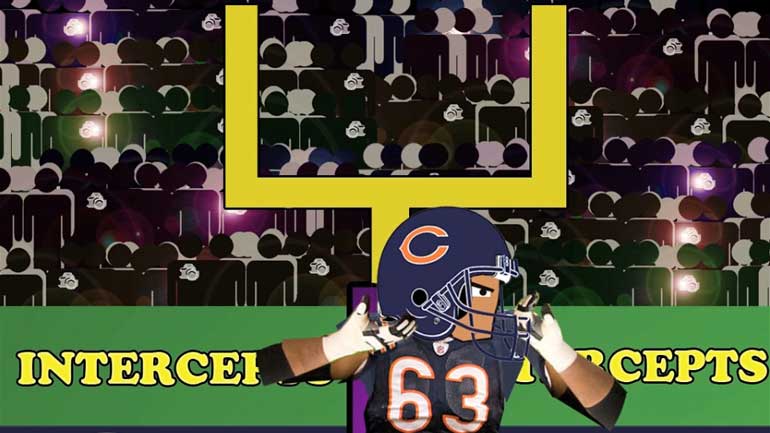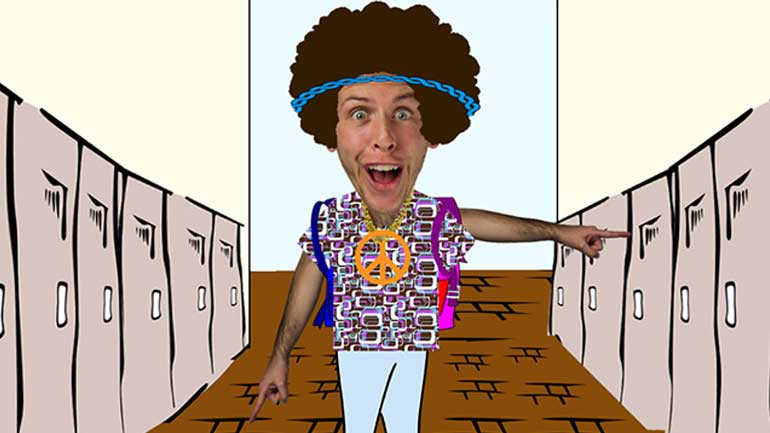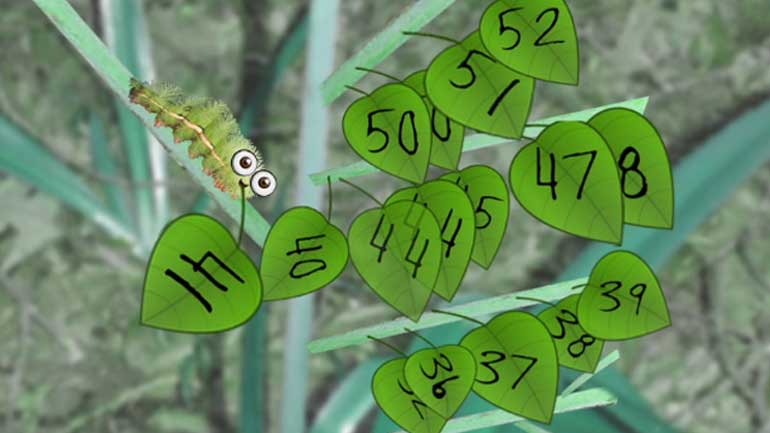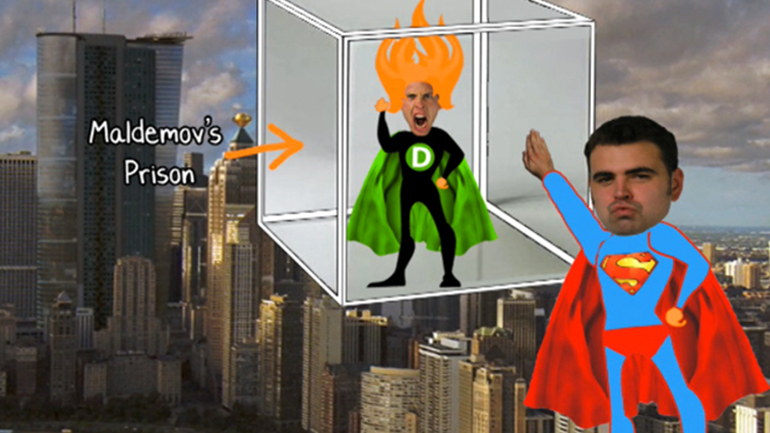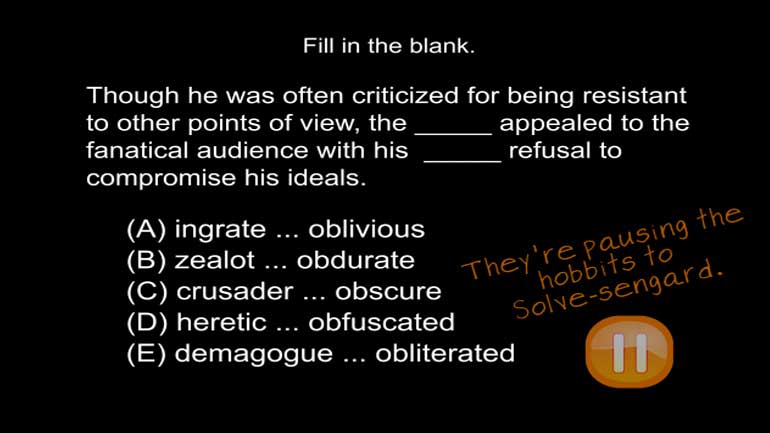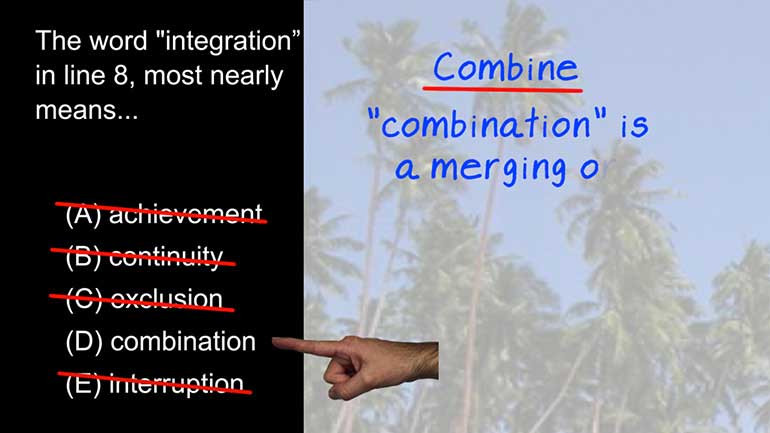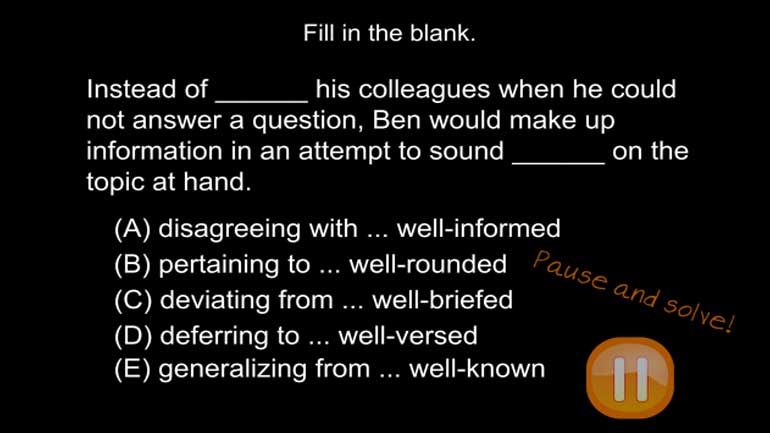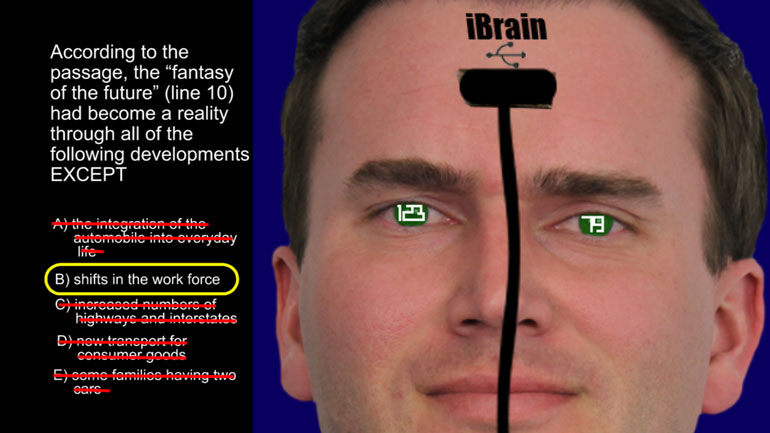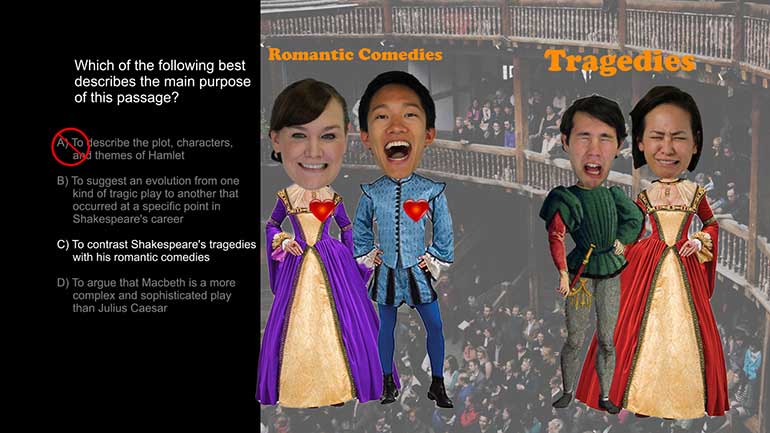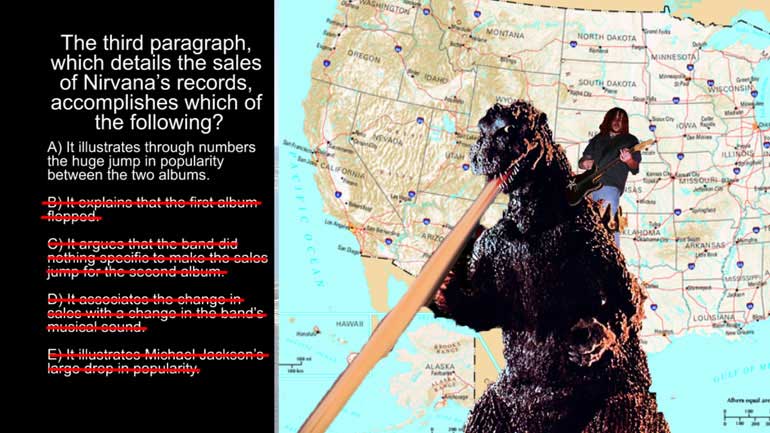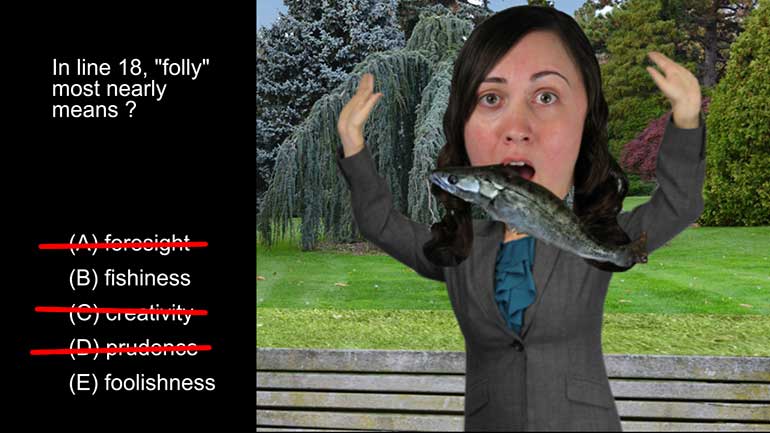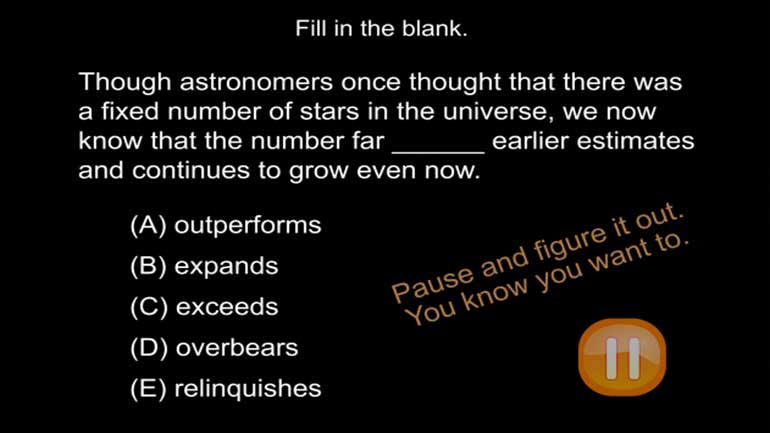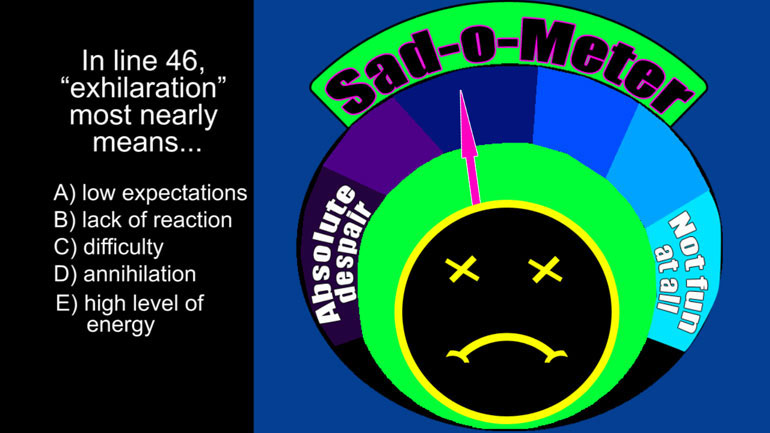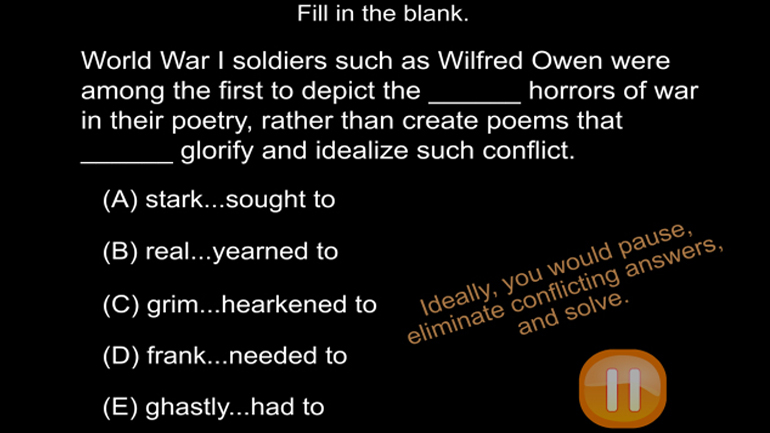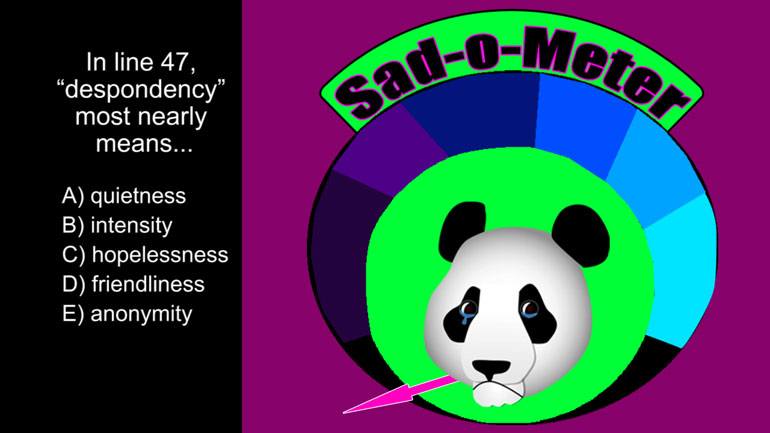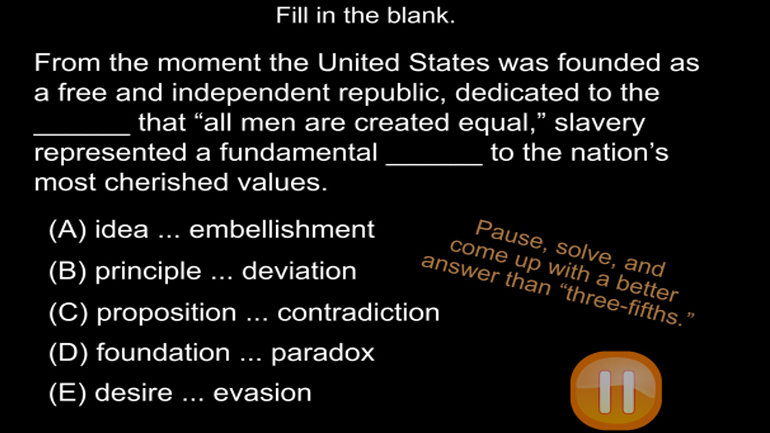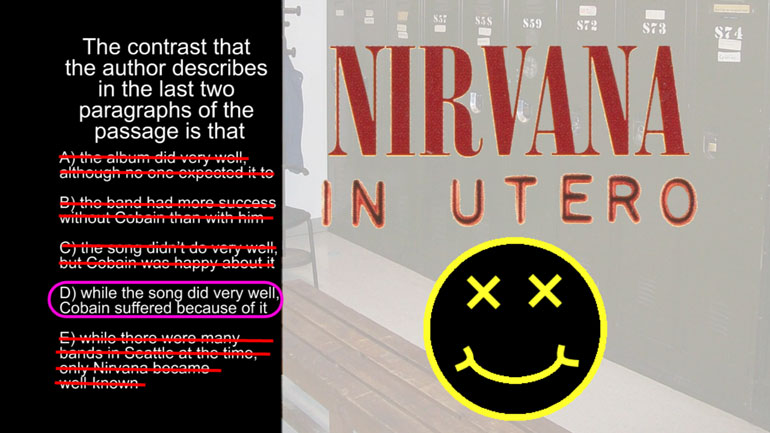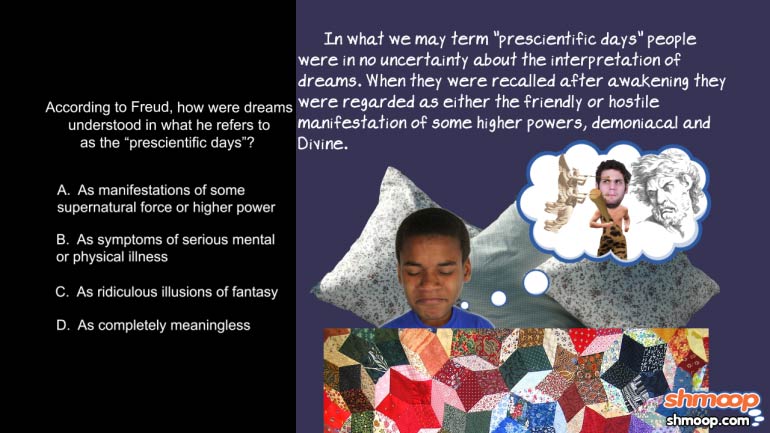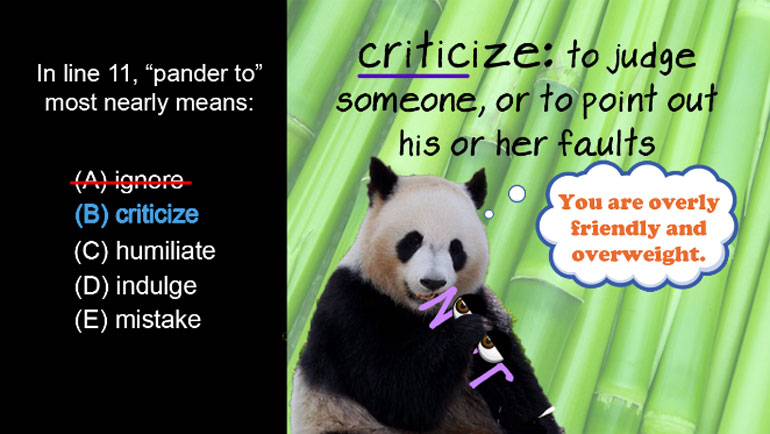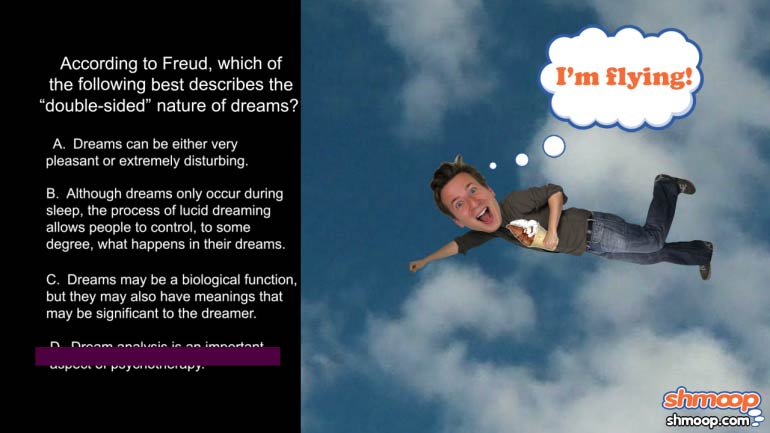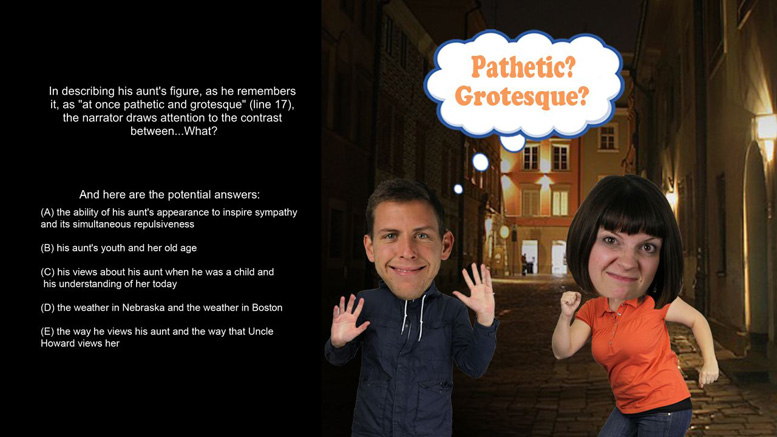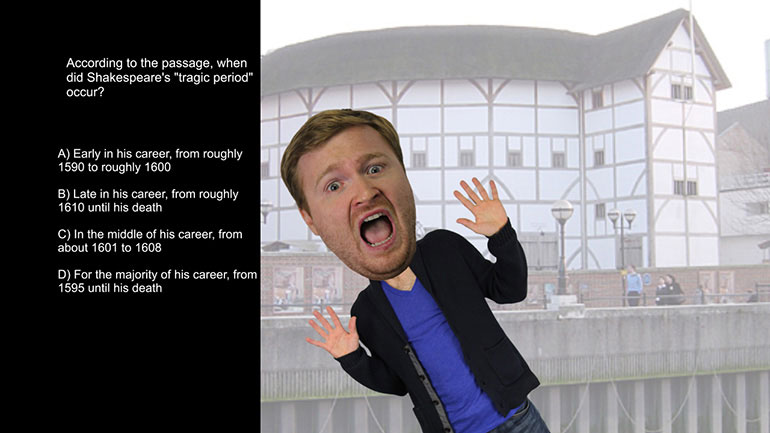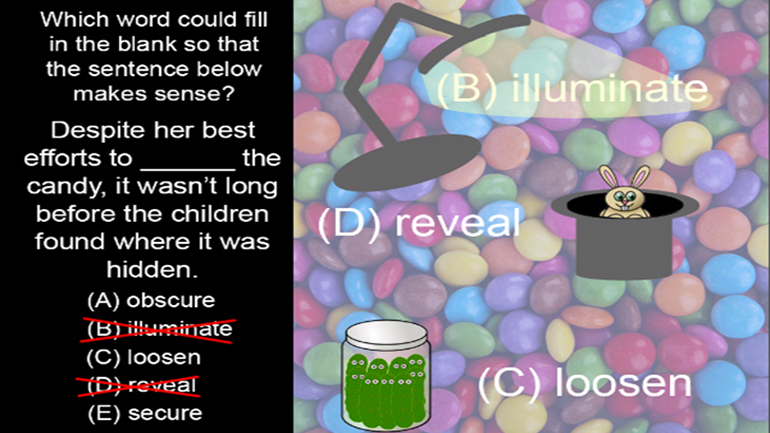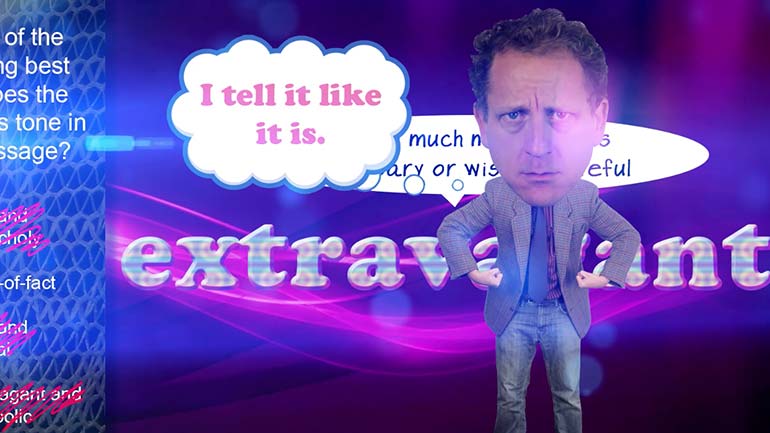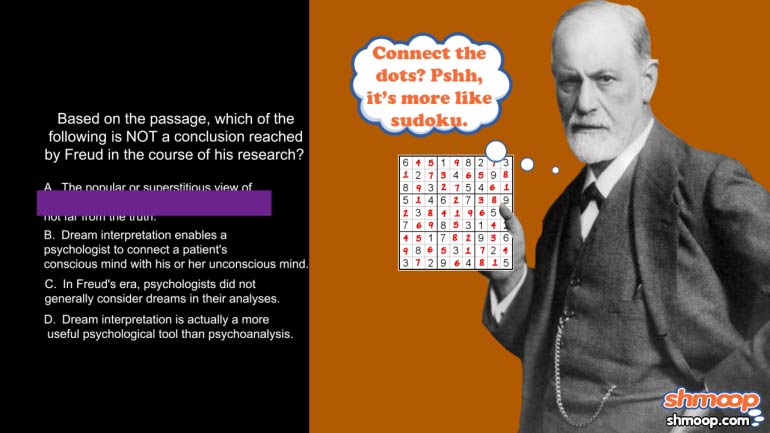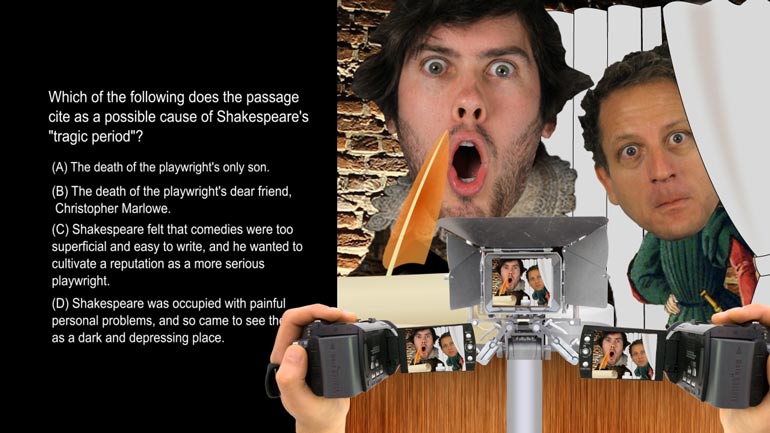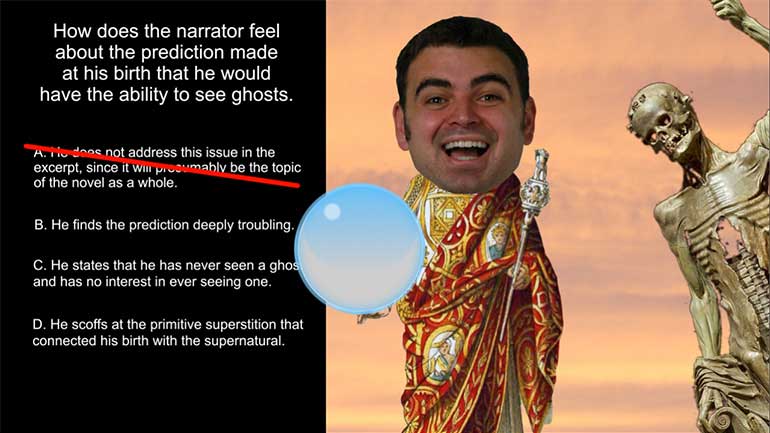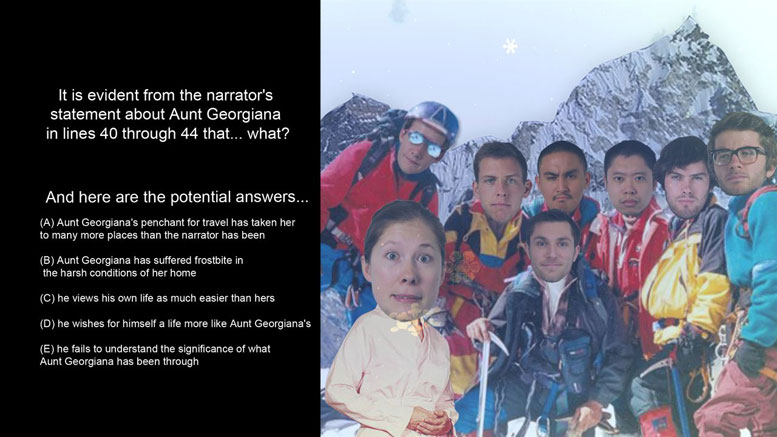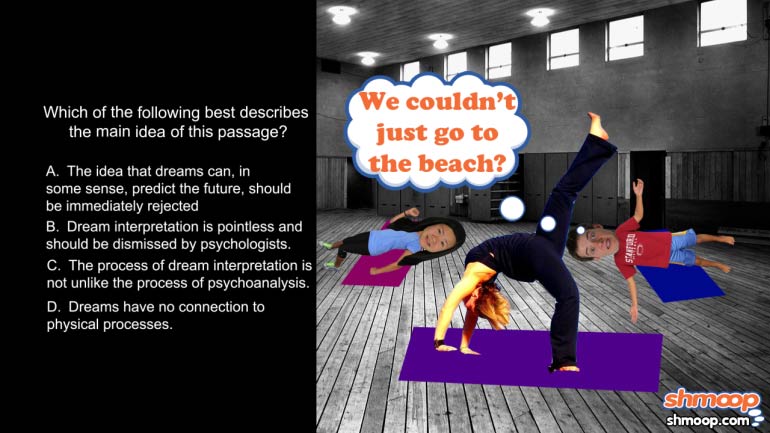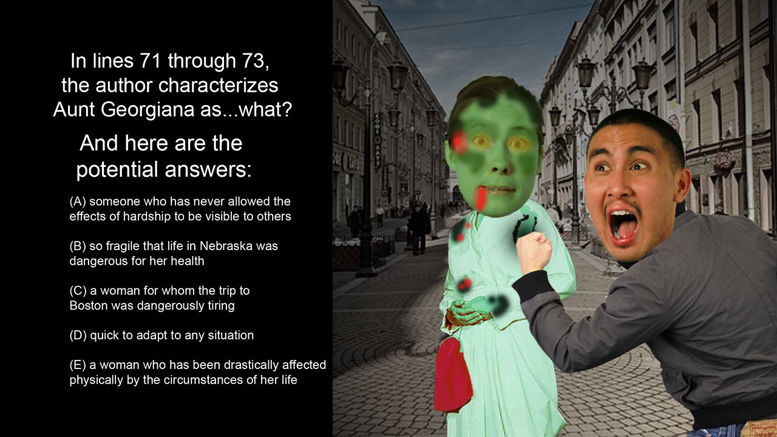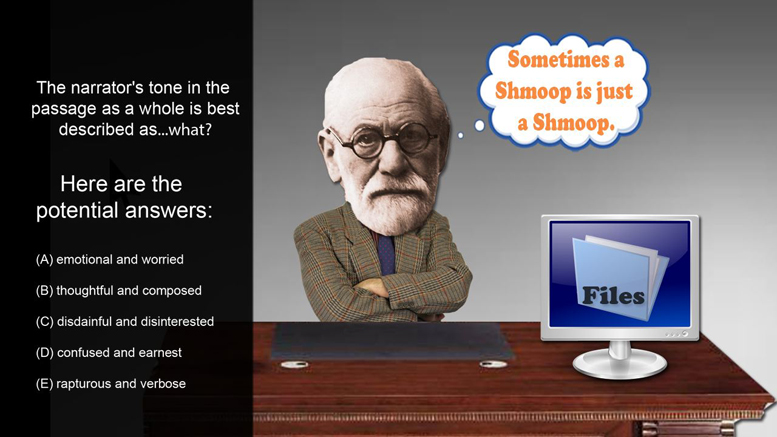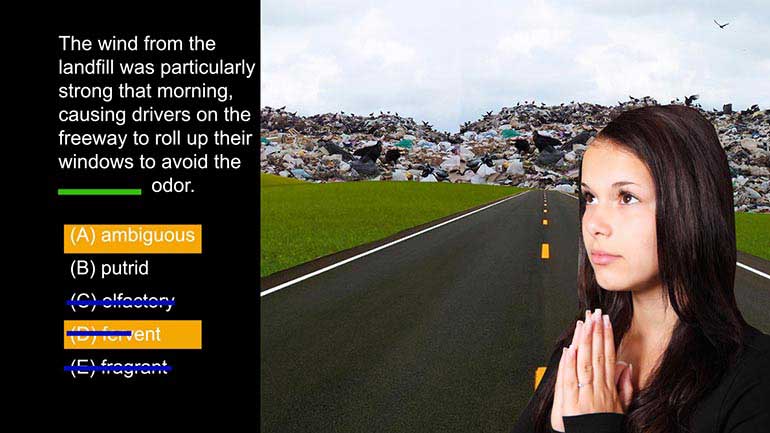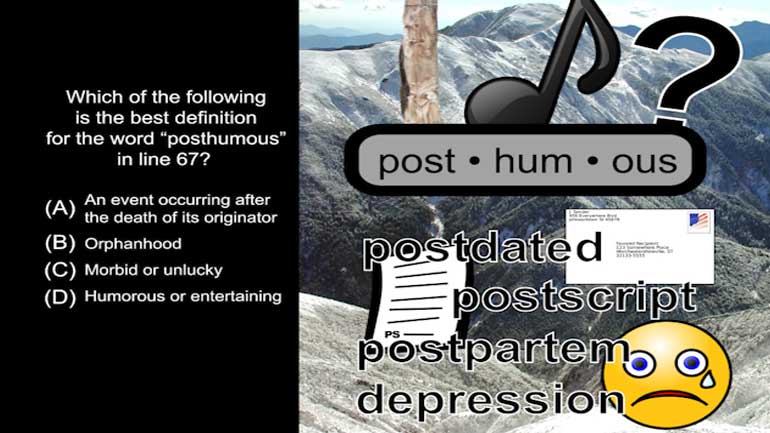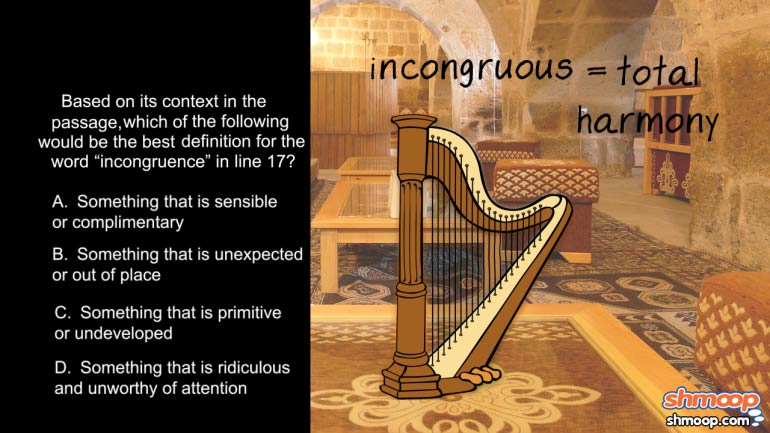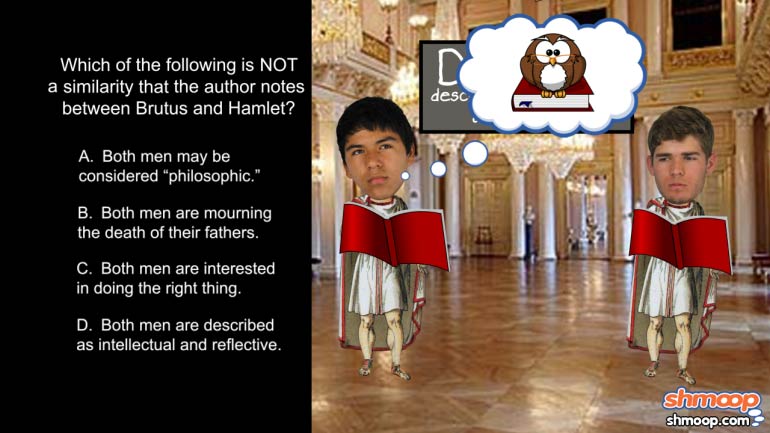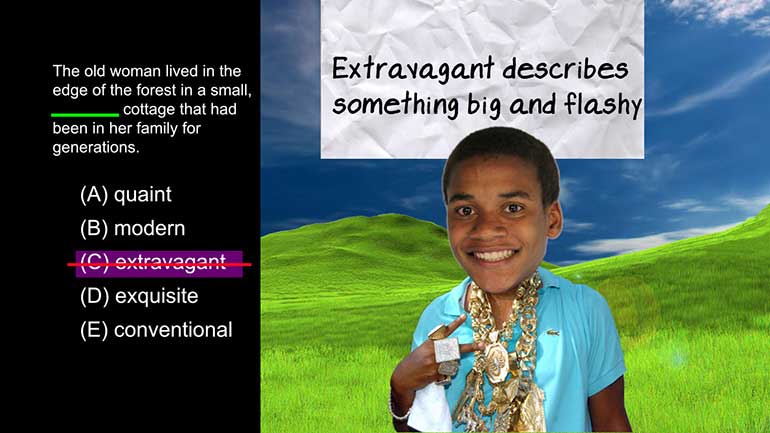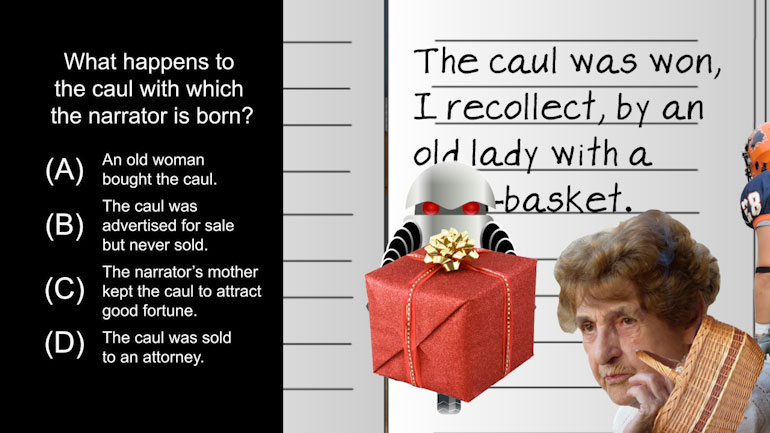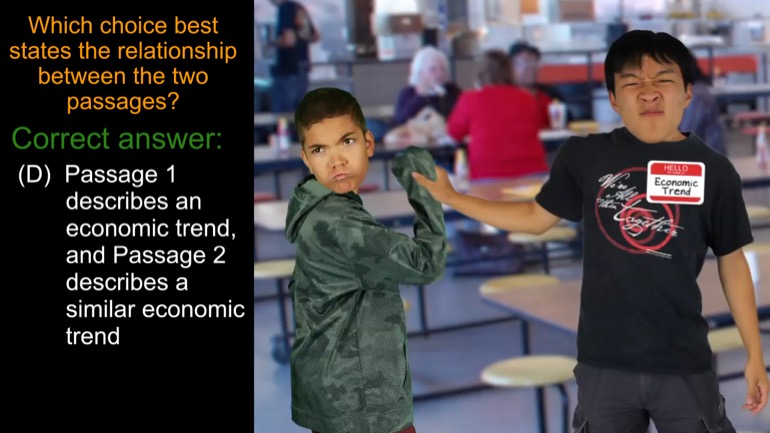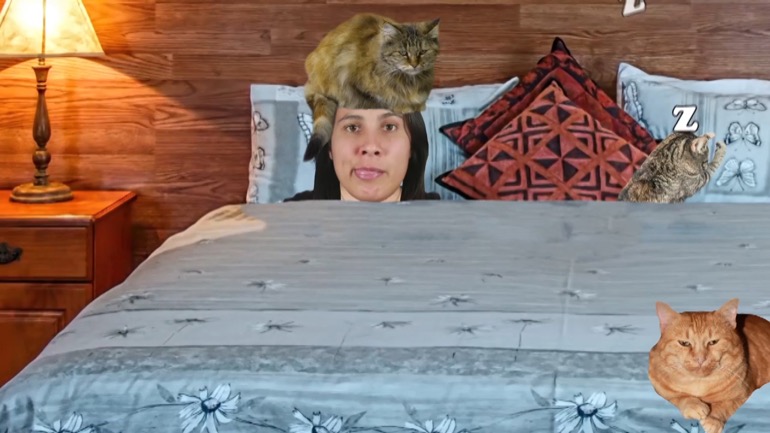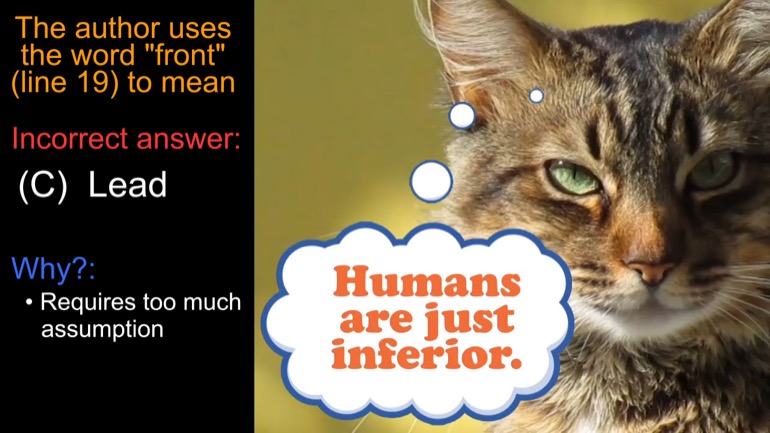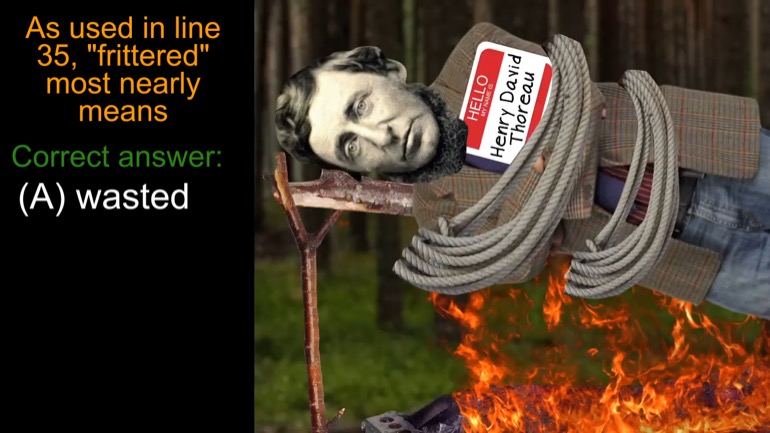ShmoopTube
Where Monty Python meets your 10th grade teacher.
Search Thousands of Shmoop Videos
Foreign Language Videos 385 videos
Pobre Batman, la probabilidad básica está haciendo su vida más difícil. Solamente cuando el ha tomado al pingüino , lo ha encerrado tras las r...
¿Has estado pasando todo tu tiempo alrededor números irracionales? Están cheveres del todo, y definitivamente interesantes, pero; ¿no valoras...
SAT Reading 2.2 Long Passages 178 Views
Share It!
Description:
SAT Reading: Long Passages Drill 2, Problem 2
- Foreign Language / Arabic Subtitled
- Foreign Language / Chinese Subtitled
- Foreign Language / Korean Subtitled
- Foreign Language / Spanish Subtitled
- Reading closely / Determining implicit meanings
- Product Type / SAT Math
- Literary Comprehension / Complex Inferences in Fiction
- Analyzing text structure / Analyzing part-whole relationships
Transcript
- 00:03
So many questions, so little time... Here's the passage, comin' back at ya!
- 00:10
Just pause it if you need to read it again...
- 00:33
The mood of the second paragraph is best described as...what?
- 00:36
And here are the potential answers...
- 00:41
In the second paragraph, the narrator is thinking
Full Transcript
- 00:43
about his past, when he was a lot younger.
- 00:46
He concludes that "Past Him" wouldn't have felt at all comfortable in his current situation.
- 00:52
"Present Him" would probably be a little uncomfortable in the past as well.
- 00:56
Therefore... we're sure he's not particularly enamored, or in love, with his past, making
- 01:02
(E) a no-go.
- 01:03
"Enthusiastic" sounds like enthusiasm, so we know it has to do with being mega-excited
- 01:08
about something.
- 01:10
As nice as it would be for he narrator to be enthusiastic about his childhood, however,
- 01:14
that's isn't the case.
- 01:15
We can cross out (D) as well. "Apathetic" sounds like "apathy,"
- 01:19
which means being, like... "whatevs" to pretty much everything.
- 01:23
Hint: the word deals with the root word "pathos" which has to do with feeling sympathy for
- 01:29
something.
- 01:31
When "a" is put in front of some words it can mean "no."
- 01:35
So, in this case we have "no-pathos," or "a-pathetic."
- 01:41
The narrator spends too long reminiscing about the old days for this to be true though, so
- 01:45
we can nix (C).
- 01:47
"Anxious" comes from "anxiety" so we know it refers to when a person feels extremely
- 01:52
nervous.
- 01:53
Though the narrator does feel suddenly uncomfortable with the life he left behind, he doesn't
- 01:57
show any signs of being outright "anxious" about it.
- 02:00
This leaves choice (B), "nostalgic," which describes a person who's feeling--you guessed it--
- 02:06
"nostalgia."
- 02:07
Not only is this the right answer, it's also one of our favorite words, because it
- 02:11
describes when a person is thinking about their past and feeling both pleasure and sadness
- 02:16
at the same time.
- 02:18
Hey, we love it when reading material is complex....
- 02:21
Even when it's about corn.
Related Videos
How was the Beanie Baby era parallel to the Tulip Bubble? Similar events, only the TulipMania almost bankrupted Holland. Bean Babies only bankrupte...
Contemplating one's life is key to fulfilled happiness. Thoreau's theme revolves around the simple life well lived. He clearly never tried virtual...
Thoreau was all about simplicity; anything that took away from his vision was the enemy. Mechanical aids were one of them. Guess he had to train a...
Thoreau uses "front" to mean "face". He wants to face The Facts of Life without shying away from our natural tendencies, roots, and the simply way...
What does "frittered away" mean in this context? Wasted. Wasted by the way. Thoreau claims we fritter away our lives praying to modern complex dist...



